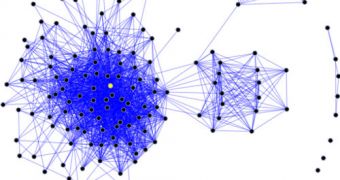In a new scientific study, researchers argue that the influence computer-mediated social networking has on our daily lives should be analyzed in more detail. They say that this could help us gain a better understanding of how the virtual world is changing the way we live our lives.
There is no question among scientists that people connect differently since websites such as Myspace, Facebook and Twitter came along. People can re-connect with each other years later if they remember each other's names.
Additionally, distances become even smaller, as individuals can keep in touch with their family, friends, colleagues and so on nearly in real-time. The only prerequisite for this is that people own a computer.
In the recent paper, scientists from the University of Minnesota explain why they believe analyzing interactions that develop during social networking is so important. Doing so might actually change the way we view the world, the team believes.
Some of the things that could be heavily influenced by social interactions include variations in the level of trust people have in various institutions or public figures, the rise and fall of new leaders, as well as user migration patterns within online communities.
Details of the new paper were presented at a national workshop hosted recently by the University of California in Santa Barbara (UCSB), PsychCentral reports.
UM computer science and engineering professor Shashi Shekhar, PhD and research assistant Dev Oliver co-authored the research, which is entitled “Computational Modeling of Spatio-temporal Social Networks: A Time-Aggregated Graph Approach.”
What researchers studying social networks today focus on is mostly social studies, such as for example discovering the most influential person in a certain group, finding out how friends connect, discovering leaders in various communities, and so on.
There is currently the need for “a central role for computation and computational models, not only to scale up to the large and growing data volumes, but also to address new spatio-temporal social questions related to change, trends, duration, mobility and travel,” Shekhar and Oliver explain.
Researchers could go about doing this in a variety of ways, ranging from analyzing the profiles of people who do not use security settings to asking some Facebook users, for example, to enlist in their experiments.

 14 DAY TRIAL //
14 DAY TRIAL //